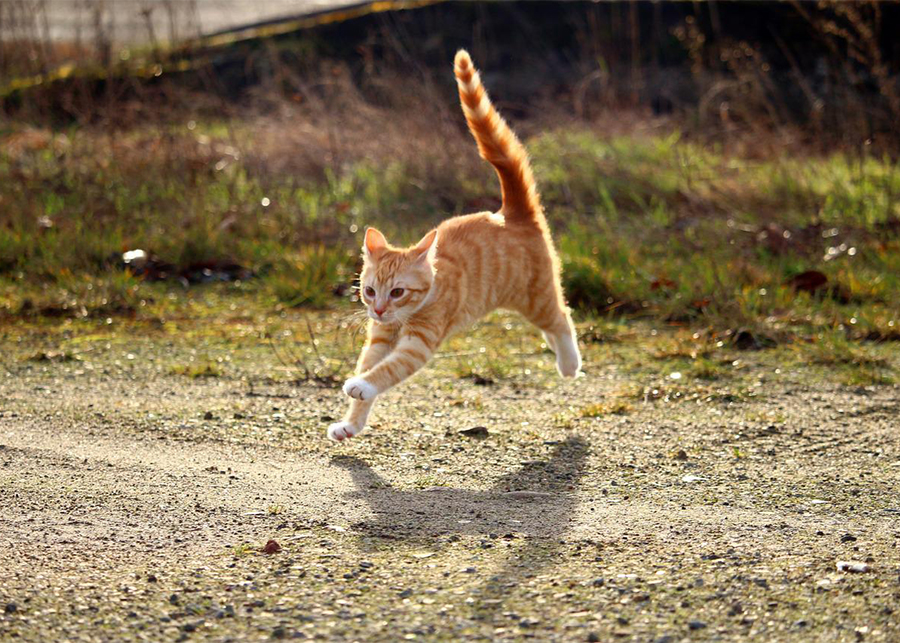If you think your cat can find its way home, you’re probably right. Many cats have the ability to return to their human’s house no matter where they go. Cats can be considered some of the most independent animals on the planet. They can take care of themselves and usually don’t need too much help from their humans. But one question remains—can cats find their way home? Or do they just wander around until they get lost? Turns out, there’s a lot of debate over this topic! Some experts say that cats definitely have a homing instinct and can always find their way back home. Others claim that cats are actually pretty terrible at finding their way around, and rely mostly on luck to make it back safely. So, what’s the truth? Read on to learn more about this interesting topic!
Cats are often considered some of the most independent animals on the planet. They can take care of themselves and usually don’t need too much help from their humans. But one question remains—can cats find their way home? Or do they just wander around until they get lost? Turns out, there’s a lot of debate over this topic! Some experts say that cats definitely have a homing instinct and can always find their way back home. Others claim that cats are actually pretty terrible at finding their way around, and rely mostly on luck to make it back safely. So, what’s the truth? Read on to learn more about this interesting topic!
Can Cats Really Find Their Way Home?
Yes, cats can find their way home. In fact, they have an amazing sense of direction and can often return home even if they’ve been moved to a new location. Cats use a combination of sight, scent, and memory to retrace their steps and find their way back to their familiar territory. So, if your cat ever gets lost, don’t worry – there’s a good chance she’ll be able to find her way home.
Can Cats Find Their Way Back to a New Home?
There are lots of anecdotal reports of cats finding their way back to their old homes, even after being moved hundreds of miles away.
While there isn’t a ton of scientific research on the subject, there are some studies that suggest that cats have an innate sense of direction and can use cues like the sun and magnetic fields to orient themselves.
So, it’s possible that your cat could find its way back to your old home if it was moved a short distance away. But if you’ve relocated to a new city or state, it’s unlikely that your cat will be able to find its way back.

Can Cats Find Their Way Home Years Later?
There is evidence that cats can find their way home years later. A study was conducted involving 546 domestic cats who were relocated to new homes. Some of the cats had been moved as far away as 600 miles from their original home. Eleven of the cats made their way back to their old homes, with one cat traveling a distance of 430 miles.
These findings suggest that cats have some innate ability to navigate based on memory and landmarks. However, it’s worth noting that the number of cats who found their way home in this study was relatively small. It’s possible that the cases where cats did find their way home were simply due to chance.
Can Cats Find Their Way Home? Result
Before you head out on your next trip, you might want to consider bringing your cat along as well. Given the information we have, it does appear that felines have some innate ability to navigate home using memory and landmarks. And since many cats travel for long distances on their own, it stands to reason that cats will know how to find their way home after a trip across town that is, if they’ve been there before.
F.A.Q
What percentage of cats find their way home?
Our study findings indicate that the majority of pets are found by returning home on their own. This should be a reminder to all pet owners to take precautions to keep your pets safe at home. While you may have some trepidation regarding your beloved pet’s ability to manage itself in your absence, consider that most dogs and cats are more competent than they’re given credit for.
Do cats forget their owners in 3 days?
Cats have extremely strong memories, and they don’t forget their owners after three days. These furry felines focus strongly on the things that matter most to them and use associative and selective memory to remember where to find food and shelter. if you want him or her to remember your face, talk to it a lot so he or she associates your voice with safety, shelter and love.
